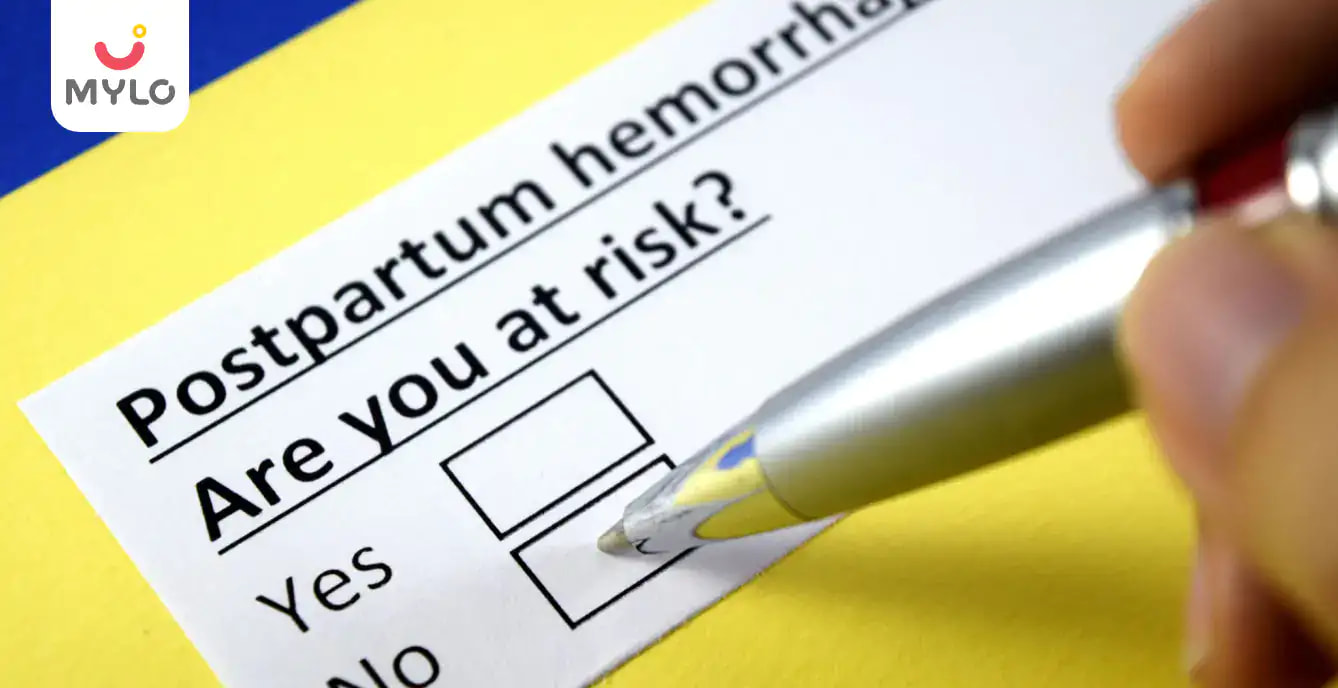Home

Health & Wellness

Causes of Post-traumatic Stress Disorder(PTSD)
In this Article

Health & Wellness
Causes of Post-traumatic Stress Disorder(PTSD)
Updated on 3 November 2023
PTSD or Post-Traumatic Stress Disorder is common and can become a rare mental health condition generally triggered by terrifying events. Per experts, PTSD is a long-lasting consequence of various traumatic ordeals that may cause intense fear, horror or helplessness. Some examples of factors that can lead to PTSD include an accident, the unexpected death of a family member, or physical or sexual assault. In most cases, people with PTSD can develop PTSD symptoms within just one month of a traumatic event. However, sometimes, symptoms of PTSD may not develop until years after the traumatic events. Explore more information about PTSD meaning below.
Causes of Post-traumatic Stress Disorder (PTSD)
Every person reacts to various traumatic events differently. Each individual is unique in managing their fear or stress and the threat posed by any traumatic situation or event. That's why not all persons who have gone through a traumatic event will develop PTSD Post-traumatic Stress Disorder Symptoms. On the other hand, the type of support or care an individual receives from a doctor, family member or friend after a traumatic event will also influence PTSD development and the severity of PTSD symptoms.
As per doctors, any person who has had a traumatic experience can suffer from post-traumatic stress disorder. Individuals abused as a child or repeatedly exposed to various life-threatening situations are at a greater risk of developing post-traumatic stress disorders.
Different events that can cause PTSD are:
-
Conflict and war
-
The death of loved ones or someone very close to you
-
Serious accidents
-
Abuse, such as domestic or childhood abuse
-
Sexual or physical assault
-
Serious health issues
-
Exposure to some traumatic events at work
-
Childbirth experiences, for example, losing a baby
-
Torture
-
The way the brain regulates the hormones and chemicals in your body in response to stress.
Are some people more prone to PTSD than others?
People from all age groups can develop PTSD. However, some factors can make individuals more likely to develop this condition after a traumatic event. For example:
-
Having any family members with mental disorders, such as depression and anxiety.
-
Experiencing long-lasting or intense trauma.
-
Lacking proper support from friends and family
-
Having other psychological disorders, like stress, depression and anxiety.
-
Having a job that increases the risk of exposure to any traumatic events, like first responders or military personnel.
-
Having issues with misuse of substances, like excess drug use and drinking
People who have experienced or possess these risk factors are more prone to PTSD than others. Post-traumatic stress disorder can develop in around 1 in 3 individuals who experience trauma. It is still unclear why some people develop PTSD after a severe trauma while others don't.
Sign And Symptoms of PTSD can be witnessed within one month of the event. However, in some cases, it can take years. These symptoms can cause many issues in work, social situations, and relationships. The symptoms can be divided into four major categories.
-
Reliving- This includes symptoms like hallucinations, flashbacks, nightmares and more. People may feel distressed when some factors remind them of trauma.
-
Increased Arousal- This includes problems in showing affection, excessive emotions, irritability, issues in concentrating, staying asleep, muscle tension, increased blood pressure and more.
-
Avoiding – An individual with PTSD may avoid places, situations, people and thoughts that may remind them of trauma. They will begin to feel isolated and detached.
-
Negative mood or cognition- This can refer to feelings and thoughts related to estrangement, blame, and memories of a severely traumatic event.
Why does it develop?
PTSD can affect many problems in life, including the patients' relationships and jobs. It can also affect the regular activity and health of the patients. As per some studies, PTSD may also lead to mental problems, like developing suicidal thoughts, anxiety, depression, eating disorders and drug or alcohol abuse.
The PTSD condition does not always develop because you have experienced a traumatic event. Sometimes, people who have seen their close relatives experience trauma or heard of it can also develop PTSD. The condition might develop for multiple psychological, environmental and genetic reasons.
If any person has disturbing thoughts or feelings about any traumatic events for more than two to three months, and if those thoughts are very severe, they should consult the doctor as soon as possible. They can also speak to a professional mental health expert. Getting the right treatment on time can help in preventing PTSD signs from getting worse. Based on the severity of the symptoms, the doctor may suggest medications like antidepressant medicines or psychotherapy treatments, such as cognitive behavioural therapy, to control the condition.
Getting proper support and help may prevent stress reactions from worsening, and the patients may lower the risk of developing PTSD. This may include friends and family who can listen and offer the necessary comfort to the patients. It may mean taking help from a mental care expert for a detailed course of therapy.



Written by
sakshi prasad
Get baby's diet chart, and growth tips

Related Articles
Related Questions
Influenza and boostrix injection kisiko laga hai kya 8 month pregnancy me and q lagta hai ye plz reply me

Hai.... My last period was in feb 24. I tested in 40 th day morning 3:30 .. That is faint line .. I conculed mylo thz app also.... And I asked tha dr wait for 3 to 5 days ... Im also waiting ... Then I test today 4:15 test is sooooo faint ... And I feel in ma body no pregnancy symptoms. What can I do .

Baby kicks KB Marta hai Plz tell mi

PCOD kya hota hai

How to detect pcos

RECENTLY PUBLISHED ARTICLES
our most recent articles

Diet & Nutrition
গর্ভাবস্থায় আলুবোখরা: উপকারিতা ও ঝুঁকি | Prunes During Pregnancy: Benefits & Risks in Bengali

Diet & Nutrition
গর্ভাবস্থায় হিং | ঝুঁকি, সুবিধা এবং অন্যান্য চিকিৎসা | Hing During Pregnancy | Risks, Benefits & Other Treatments in Bengali

Women Specific Issues
স্তনের উপর সাদা দাগ: লক্ষণ, কারণ এবং চিকিৎসা | White Spots on Nipple: Causes, Symptoms, and Treatments in Bengali

Diet & Nutrition
গর্ভাবস্থায় পোহা: উপকারিতা, ধরণ এবং রেসিপি | Poha During Pregnancy: Benefits, Types & Recipes in Bengali

Diet & Nutrition
গর্ভাবস্থায় মাছ: উপকারিতা এবং ঝুঁকি | Fish In Pregnancy: Benefits and Risks in Bengali

Diet & Nutrition
গর্ভাবস্থায় রেড ওয়াইন: পার্শ্ব প্রতিক্রিয়া এবং নির্দেশিকা | Red Wine During Pregnancy: Side Effects & Guidelines in Bengali
- ইনার থাই চ্যাফিং: কারণ, উপসর্গ এবং চিকিৎসা | Inner Thigh Chafing: Causes, Symptoms & Treatment in Bengali
- গর্ভাবস্থায় ব্রাউন রাইস: উপকারিতা ও সতর্কতা | Brown Rice During Pregnancy: Benefits & Precautions in Bengali
- Velamentous Cord Insertion - Precautions, Results & Safety
- Unlock the Secret to Flawless Skin: 7 Must-Have Qualities in a Face Serum
- Unlock the Secret to Radiant Skin: How Vitamin C Serum Can Transform Your Complexion
- Gender No Bar: 10 Reasons Why Everyone Needs a Body Lotion
- Unlock the Secret to Radiant Skin How to Choose the Perfect Body Lotion for Your Skin Type
- Top 10 Reasons to Apply a Body Lotion After Every Bath
- Communication in Toddlers: Milestones & Activities
- How to Improve Vocabulary for Toddlers?
- A Comprehensive Guide to Understanding Placenta Accreta
- Vulvovaginitis in Toddlers Causes, Symptoms and Treatment
- A Comprehensive Guide to Understanding Cerebral Palsy in Children
- Bitter Taste in Mouth During Pregnancy: Understanding the Causes and Remedies


AWARDS AND RECOGNITION

Mylo wins Forbes D2C Disruptor award

Mylo wins The Economic Times Promising Brands 2022
AS SEEN IN
















- Mylo Care: Effective and science-backed personal care and wellness solutions for a joyful you.
- Mylo Baby: Science-backed, gentle and effective personal care & hygiene range for your little one.
- Mylo Community: Trusted and empathetic community of 10mn+ parents and experts.
Product Categories
baby carrier | baby soap | baby wipes | stretch marks cream | baby cream | baby shampoo | baby massage oil | baby hair oil | stretch marks oil | baby body wash | baby powder | baby lotion | diaper rash cream | newborn diapers | teether | baby kajal | baby diapers | cloth diapers |








